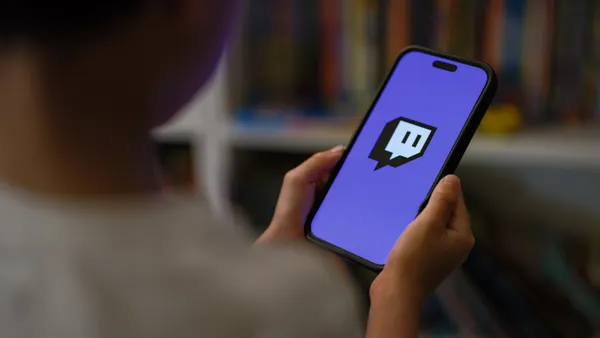Dive Brief:
- Disney has reportedly pulled its ad spending from YouTube, following the lead of other marketers that are again concerned over the platform's facilitation and monetization of highly questionable content, Bloomberg reported, citing anonymous sources familiar with the matter. The move, which has not been made public, reportedly comes as a response to a viral 20-minute video posted by vlogger Matt Watson that explains how YouTube comments are used to identify videos showing young girls in activities that could be seen as sexually suggestive and that might be facilitating a type of "soft-core pedophilia ring."
- The entertainment giant joins other companies in recently pausing advertising on the Google-owned video platform in the U.S., including Nestlé. Epic Games, the creator of the massively popular video game "Fortnite," and German packaged foods company Dr. August Oetker KG have similarly frozen their spending. Ads for Disney, Nestlé brands and other companies enacting freezes did play around some of the videos under scrutiny, Bloomberg said.
- Total ad spending on the videos amounted to less than $8,000 over the past 60 days, a YouTube spokesperson told Bloomberg, and the company plans to issue refunds to the advertisers. Epic Games has specifically stopped running pre-roll advertising on YouTube, The Verge reported, and has reached out to the platform via its ad agency to see what is being done to remove the predatory content. Stationary bike brand Peloton is also working with its media agency to determine why its ads played around the videos in question. YouTube told The Verge it immediately removed the channels sharing the videos and reported them to authorities.
Dive Insight:
YouTube's push to improve brand safety faces a significant setback with the alarming findings around pedophile-linked content on its site. The platform's brand safety woes first flared up two years ago, when marketers found their ads running next to hateful content, including some videos that promoted terrorism. Companies like Procter & Gamble and AT&T previously boycotted YouTube, but since have returned to buying ads.
It remains to be seen how long the current freezes will last, but news that YouTube has continued to monetize potentially predatory videos shows that solutions the Google-owned company has implemented in recent years, such as hiring 10,000 human content reviewers and investing more in machine learning, still aren't enough to account for exploits to features like its recommendation algorithm and commenting system.
The advertisers leading the current round of boycotts could create a considerable impact on YouTube's revenue. Disney is one of YouTube's top advertisers, having accounted for 4% of its ad revenue last year, an analysis by MediaRadar shows. Epic Games' "Fortnite" also has a huge presence on YouTube, which has helped to drive the online game's popularity, especially with younger consumers in the Gen Z set who spend a lot of time on the platform.
Google has taken several steps to improve transparency with how its videos are monetized, including implementing tougher vetting requirements on videos. It also recently introduced a "strike" rule that gives first-time offenders a warning when they violate the site's policies.
Marketers continue to up their digital video investments, and video ad spend is expected to grow from $91 billion in 2018 to $103 billion by 2023, according to Forrester. YouTube has been a key digital platform for marketers thanks to its ability to reach billions of users. YouTube remains one of the most popular platforms among teens and millennials, the latter of which rank the site as "the most intimate brand," per MBLM's 2019 Brand Intimacy Study.
Brand safety and transparency continue to be major concerns for marketers, though most see things generally improving thanks to technology and blacklists and whitelists for publishers and websites, according to a new report by GumGum and Digiday Media. However, some of the success in ensuring brand safety has been at the expense of business goals like targeting bigger audiences, the research found.











